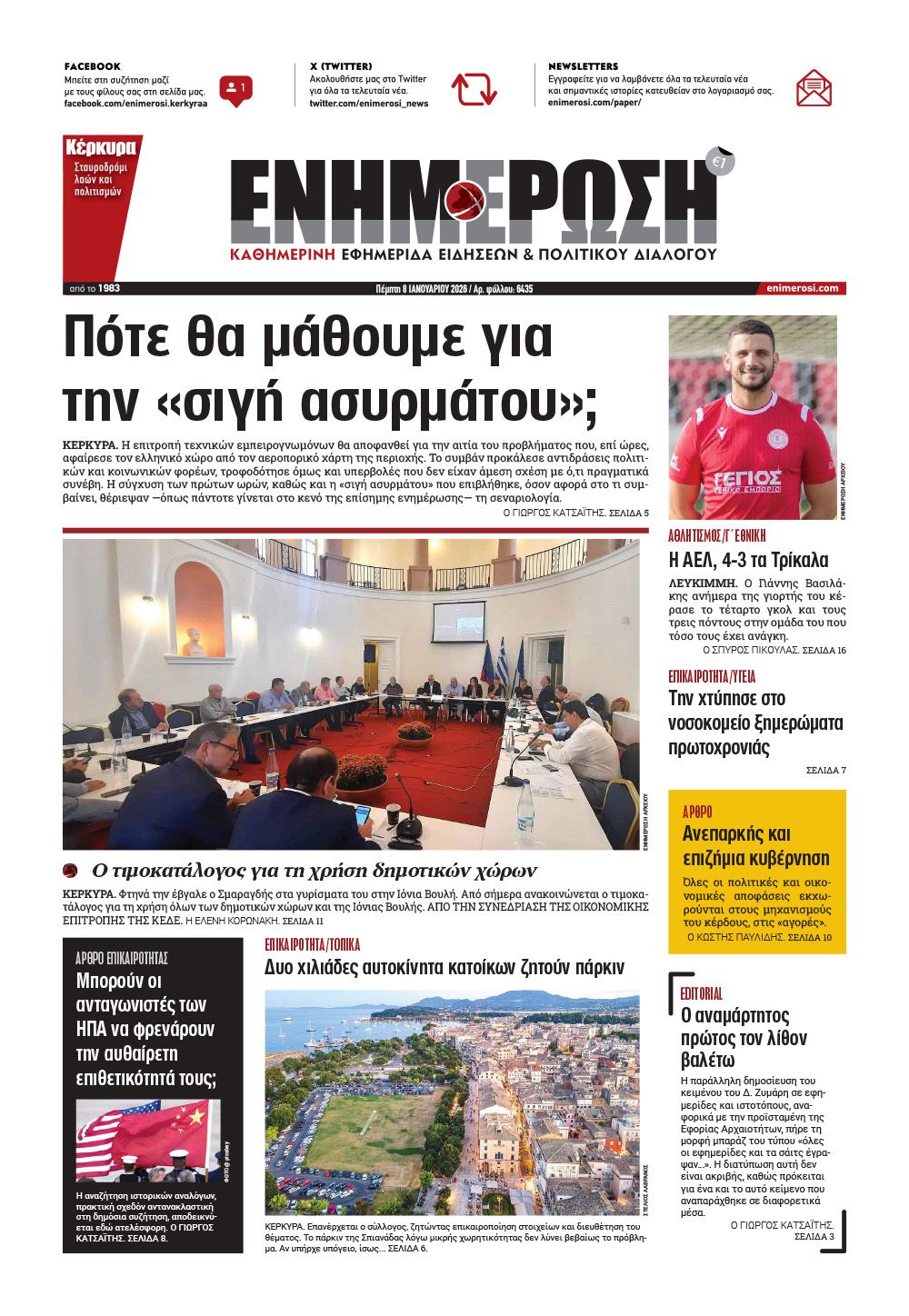Ionian University creates ten digital Artificial Intelligence Biobanks

CORFU. A significant step forward in disease research and clinical applications.
(Ionian University) The Bioinformatics and Human Electrophysiology Laboratory (BiHELab) at the Ionian University, under the guidance of Professor Panagiotis Vlamou, has presented a groundbreaking advancement in the field of digital health data analysis. The laboratory has successfully created ten state-of-the-art Digital Artificial Intelligence Biobanks for ten specific diseases, which promise to contribute significantly to biomedical research.
The ten AI Biobanks developed by BiHELab represent a significant step forward in disease research and clinical applications. Designed to cover a wide range of medical conditions, these unique repositories of valuable biomedical data offer a broad spectrum of high-volume digital data, including medical imaging data, molecular biology data, clinical data and data from activity monitoring devices. With over 5 million gene expression records, over 50,000 imaging data sets, and the integrated inclusion of more than 300 independent studies, these AI biobanks present an unprecedented opportunity to advance the understanding of various diseases.
The BiHELab AI Biobanks not only provide a rich collection of data but also offer an additional provision that leverages Artificial Intelligence. They feature proprietary state-of-the-art AI tools developed exclusively in the laboratory, enabling advanced analysis and creating a unique opportunity for discovering valuable study information and understanding various diseases.
Furthermore, the post-analysis capabilities of the platform allow for the integration and evaluation of results from multiple previously unconnected studies and heterogeneous datasets, paving the way for comparative assessments of disease mechanisms, treatment effectiveness and the identification of novel or complex biomarkers.
One of the key advantages of BiHELab's AI Biobanks is their ability to serve as reliable reference points for researchers and clinicians. The curated post-data provided by these biobanks helps guide the analysis of new protocols, ensuring consistency and comparability across studies.
The ten digital biobanks developed by BiHELab are categorised into five main disease categories, covering a wide range of medical conditions. The categories include:
Neurological disorders [1] Huntington's disease [2] amyotrophic lateral sclerosis [3] multiple sclerosis
Neurodevelopmental disorders [4] autism spectrum disorder
Psychiatric disorders [5] post-traumatic stress disorder
Infectious diseases [6] Covid-19
Oncological disorders [7] lung cancer [8] skin cancer [9] pancreatic cancer [10] colorectal cancer.
This comprehensive large-scale data collection ensures that researchers have access to a wealth of information to accelerate biomedical research and enable precision medicine approaches.
To ensure the security and privacy of data, the BiHELab digital biobanks employ advanced encryption techniques and provide secure registries. These measures guarantee the protection of sensitive information while facilitating seamless integration with existing data sets. Additionally, the cloud services of the platform offer efficient data storage, processing and collaboration, creating an environment that fosters a collaborative and effective research ecosystem.
In conclusion, the construction of these ten unique AI Biobanks by BiHELab at the Ionian University marks a remarkable milestone in the field of biomedicine, with interoperability as a focal point. The estimated value of these AI Biobanks takes into account factors such as data volume, artificial intelligence services, post-analysis capabilities, reference data, biomarker identification, registries, user-friendly data uploading, as well as data security measures and cloud services.
As the BiHELab at the Ionian University continues to push the boundaries of innovation, it uniquely promotes collaboration within the scientific community. The generated technological expertise, commitment to the continuous pursuit of scientific excellence, lay the foundations for pioneering technology that undoubtedly adds value to the research produced within Greek public universities.












